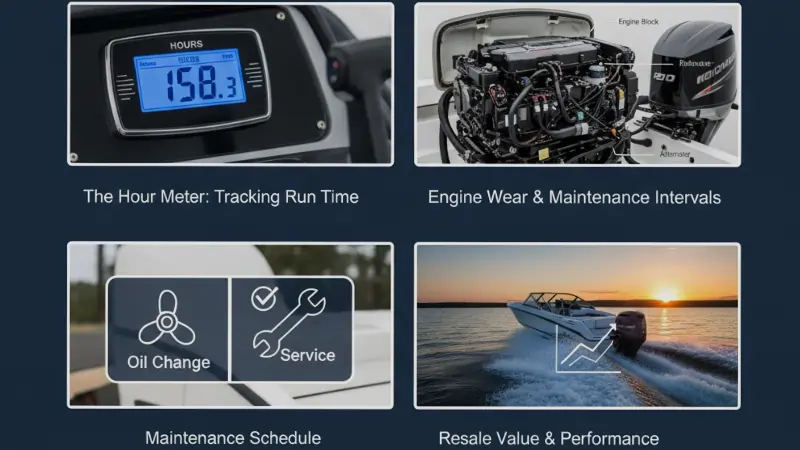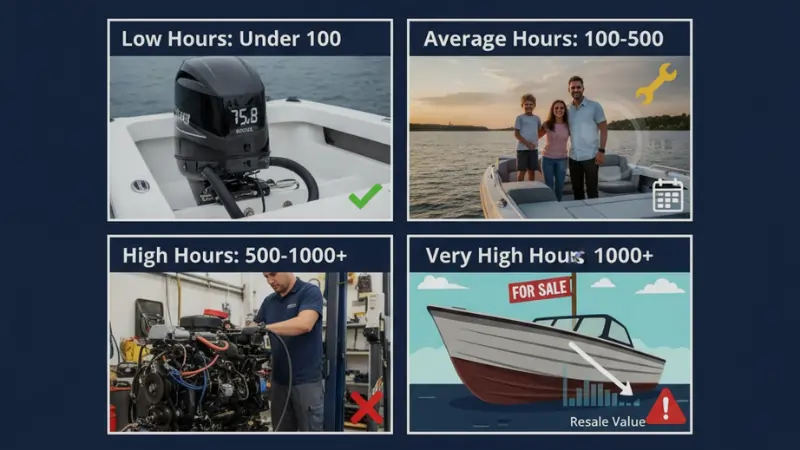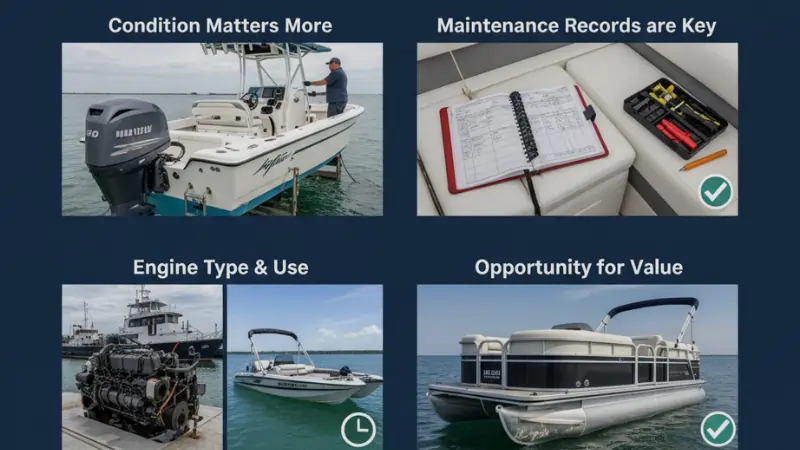How Many Hours Is a Lot for a Boat
When you shop for a used boat, engine hours often pop up as a big deal. They show how much the motor has worked, much like miles on a car. But boats don’t measure distance the same way. Instead, they track time the engine runs. You might wonder if high numbers mean trouble or how many hours is a lot for a boat.
For most gas engines, around 1,500 hours marks the point where things get iffy without good care. Diesel ones handle more, up to 5,000 hours or so. So, what’s “a lot” depends on the type and upkeep.
What Are Boat Engine Hours?

Boat engine hours count the total time your motor has been on. Think of it as a clock for the engine, not a speedometer. Every minute it runs adds up, from idling to full throttle.
For example, if you take your boat out for a weekend trip, or decide to rent a yacht NYC for a luxurious harbor cruise, that might add 10 hours to the tally. Owners check these numbers to gauge wear. Higher hours mean more use, but not always more problems.
Many boats have a meter right on the dash. It ticks like an old-school clock. Newer models link it to digital screens for easy reading.
How to Check Boat Engine Hours
First, turn the key to the “on” spot without starting the motor. Look at your dashboard or control panel. The hour meter should light up there, showing the total like a small digital readout.
If nothing shows, check your boat’s manual. Some models hide it in a menu on the multifunction display. Press buttons to scroll until hours appear.
For older boats without meters, visit a dealer. They hook up a scanner to the engine computer. It pulls the real numbers in minutes. Always double-check this before buying.
Outboards like Mercury have special tools too. A Bluetooth app connects to the motor for quick views. This way, you get accurate info fast.
How Many Hours Is A Lot For A Boat Engine?

Gas engines hit “a lot” around 1,500 hours. That’s when parts start wearing out if care slips. But with regular oil changes, some push past 2,000.
Diesel motors take more punishment. They often run fine up to 5,000 hours. For outboards, 2,000 to 3,000 isn’t scary yet.
It varies by how you use the boat. Short trips add hours slower than long cruises. So, context matters a bunch.
Factors That Influence Boat Engine Life
Maintenance tops the list for engine life. Change oil every 50 hours, and you keep things smooth. Skip it, and gunk builds up fast.
Fuel quality plays a role too. Clean gas without water stops clogs. Bad stuff shortens runs by hundreds of hours.
How you run the motor counts next. Idle a lot, and it lasts longer than constant high speed. Salt water use wears faster than fresh lakes.
Engine type matters as well. Diesels outlast gas ones by double or more. Pick quality parts from the start.
Average Hours for Boats and What’s Normal
Most recreational boats log 50 to 100 hours a year. That’s normal for weekend warriors. Over time, that adds up steady.
For a five-year-old boat, expect 250 to 500 hours total. Anything under that might sit too much. Higher for rentals, though.
Gas boats average 1,500 hours before big work. Diesels go to 8,000 with luck. Normal use keeps seals fresh. Avoid extremes on either end.
Do High Hours Always Mean a Bad Boat?

High hours don’t spell doom every time. A 2,000-hour engine with records can outrun a neglected low-hour one. Use proves reliability.
Look beyond the number. Check for smooth starts and no leaks. Service history tells the real story. Sometimes, high use means the owner cared enough to run it right.
Low hours might hide long sits and dry rot. Balance it with a test run. Pros agree: Condition trumps hours alone. Get a survey for peace.
Key Takeaways Before Buying or Selling a Boat
Always verify: Always verify engine hours yourself. Use the dash or a pro tool to confirm. Don’t trust the seller’s word alone.
Review maintenance: Review maintenance logs closely. Regular services add years to life. Spot gaps and walk if needed.
Test: Test the boat on water. Feel how it idles and revs. Hours fade if it runs strong. For selling, share full hour and service details. It builds trust fast. Buyers value honesty big time.





